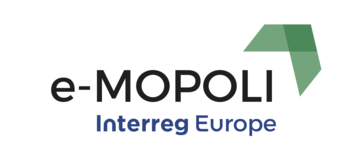[news] Memorandum on e-mobility signed in Latvia
In Latvia, an e-mobility memorandum of cooperation has been signed by the largest charging service and the largest transport sharing service providers.
For the first time in Latvia, a memorandum of cooperation in the field of electro-mobility has been signed. The largest charging service providers in Latvia - the Road Traffic Safety Directorate, AS “Latvenergo” (electricity and thermal energy generator and distributor), as well as the largest transport sharing service providers - Fiqsy, Carguru and CityBee have agreed on cooperation.
The objective of the memorandum is to jointly develop the charging infrastructure for electric transport by mutually using the data and information available to the parties for the further development of the most appropriate places and services.
According to the members of the memorandum, electromobility new services play an important role in the development of Latvia's economy, as well as reducing transport emissions. The main source of GHG emissions from transport is road transport, contributing approximately 90% of total emissions in the sector. The memorandum outlines not only the tasks related to improving infrastructure but also other objectives such as informing the public and raising its awareness, exploring and developing new products, analysing consumer demand and creating a relevant supply.
Arnis Bergs, the head of the Zero Emission Mobility Support Society and involved expert within the e-MOPOLI project, evaluates the signed memorandum positively, because in the field of electro-mobility development, where charging infrastructure needs to be developed, cooperation is technically necessary, since the number of electric cars is growing and commercial activities developing, so it is important to create infrastructure in coordination with consumer habits. Thus, the offer of electro-mobility will be able to develop in an efficient way, however, the issue of charging remains relevant. Efficient charging solutions need to be found, both at route destinations and where capacity is already available. A. Bergs points out that local governments in Zemgale have an opportunity to motivate businesses to develop the use of electric car sharing by offering free parking spaces or other bonuses to electric car users.
“It is good that also “Latvenergo” will create charging points, because the high-power charging points created by the Road Traffic Safety Directorate solve that people can drive safely and fast, but there also must be other charging points where electric cars can be conveniently parked and left. In the best scenario, they should be at the destinations of the journey - accommodation and places where you can stay for a long time” says A. Bergs.
According to him, the actions envisaged in the memorandum will have a positive impact on the expansion of the use of electric cars, people will drive them more often, but whether there will be more electric vehicles themselves is unknown. Currently the Latvian government’s position on how to develop electro-mobility within the existing plans is not quite formulated. The National Energy and Climate Plan has been approved for some time, but its development plan has a gap between the commitment to support and the goals to be achieved. There is no link between the measures and the expected results, as shown in the plans of other countries.
“Vehicle sharing has a great positive importance – the opportunity to try, educate, exchange the experience, which is good. The effect of memorandum will be positive, very well, that entrepreneurs do it with a real, profitable business. The question here is about the scale: will we be able to relax with this measure? Because it is unlikely that we will re-organize the transport system as it should be without support from the state” concludes Arnis Bergs.


![[NEWS] Brescia: E-bike sharing in Brescia](/fileadmin/user_upload/tx_tevnewsevents/news/image_1664960602.jpg)
![[NEWS] Rogaland: battery-only high speed craft](/fileadmin/user_upload/tx_tevnewsevents/news/image_1664804367.png)
![[NEWS] BSC: promoting e-mobility in Gorenjska](/fileadmin/user_upload/tx_tevnewsevents/news/image_1660136312.png)
![[NEWS] BSC: new opportunities for cooperation](/fileadmin/user_upload/tx_tevnewsevents/news/image_1660136159.jpg)
![[NEWS] Rogaland: Solar power for electric airplanes](/fileadmin/user_upload/tx_tevnewsevents/news/image_1660135530.jpg)
![[NEWS] Bucharest: decarbonization of transports](/fileadmin/user_upload/tx_tevnewsevents/news/image_1656521459.jpg)
![[NEWS] Calabria: CENTRE FOR SUSTAINABLE MOBILITY](/fileadmin/user_upload/tx_tevnewsevents/news/image_1655983407.png)
![[NEWS] BSC: rental system network for bikes](/fileadmin/user_upload/tx_tevnewsevents/news/image_1655967495.png)
![[NEWS] Attica: Electromobility in Paiania](/fileadmin/user_upload/tx_tevnewsevents/news/image_1655110894.png)
![[NEWS] Attica: First e-bike festival in Athens](/fileadmin/user_upload/tx_tevnewsevents/news/image_1655110292.png)